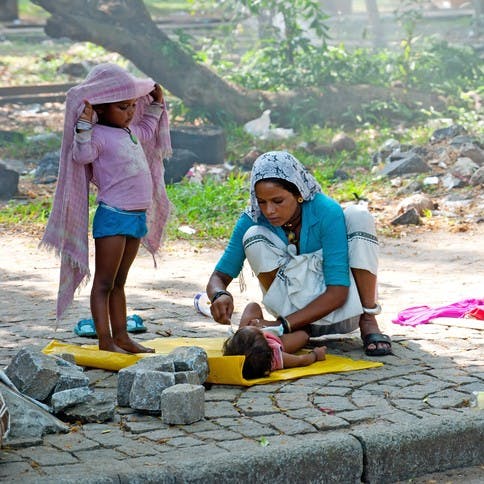Some 15 years ago, Harvard professors Michael Porter and Mark Kramer set out to answer the question of how to make philanthropy more effective. As they worked on these issues, they realised that businesses have a far wider impact on social conditions than charitable foundations, and business success is also heavily dependent on social and environmental factors where the business operates.
This led them to eventually coin the concept, of ‘creating shared value’, which promotes the idea of businesses addressing pressing social challenges within their operations.
Kramer, who is co-founder and managing director of US-based FSG, a non-profit consulting firm set up in 2000 which specialises in strategy, evaluation, and research, has spent the past decade spreading the concept, which defines three ways in which shared value can be created:
- Reconceiving products and markets – Defining markets in terms of unmet needs or social ills and developing profitable products or services that remedy these conditions.
- Redefining productivity in the value chain – Increasing the productivity of the company or its suppliers by addressing the social and environmental constraints in its value chain.
- Local cluster development – Strengthening the competitive context in key regions where the company operates in ways that contribute to the company’s growth and productivity.
In 2012, Kramer and Porter launched the Shared Value Initiative at the Clinton Global Initiative Annual Meeting, which drives the adoption and implementation of shared value strategies by organizations around the world.
Kramer, who is giving a keynote speech at the upcoming Responsible Business Forum on Sustainable Development in Singapore on 25 to 26 November, speaks to Eco-Business in this interview and shares his thoughts on how the concept has evolved and its relevance to Asia.
Since you coined the phrase ‘creating shared value’ in 2006, how do you think it has evolved in the years since?
I think the concept has been embraced far more than we had anticipated. Many companies and a number of governments have begun to explore how they can develop programmes that are conducive to creating shared value. We see companies that had already been on this path, General Electric (GE), for example, had started its ecomagination campaign well before we coined the term. Now, we see a number of companies beginning to explore social issues as business opportunities in a way they did not before.
A number of them are using the term shared value, some have even created vice president roles for shared values. One of the challenges is you need people who are deeply involved in the company and understand the social issues where they operate. Most companies are not structured that way. So we find that it’s really a multi-year journey when companies begin to embrace shared value that leads them to think about products and communities in different ways.
How has it been embraced or applied successfully, can you give specific examples?
US medical device company Medtronic is an example of a company applying this by helping to create a market for hearing aids in India. They are providing training to physicians and building capacity in rural communities to adopt hearing aids. Swiss pharmaceutical firm Novartis launched a programme, Arogya Parivar (which means healthy family in Hindi), which offers affordable medicine to rural communities in India who had no access to it before. It delivers these products via a network of local sales staff and provides health education in these communities.

An indian woman in sari cares for her child on the streets. Many in India’s rural communities still have no access to modern healthcare services - a social problem that businesses can help address. Image: Im Perfect Lazybones / Shutterstock.com
Has the meaning of the phrase changed along the way?
The three levels of creating shared value – namely, reconceiving products and markets, redefining productivity in the value chain, and enabling cluster development - has held up quite well. There are more discussions now about how to measure shared value and report it to investors . I think that we’ve come to see in many cases that companies are engaging on all three levels.
In many areas, companies cannot do this alone. They are partnering with government and NGOs to create projects. Companies have tremendous influence, resource and expertise and can make things happen, but they are not always knowledgeable about the issues or trusted by the population. So the idea of partnerships is a bigger aspect of shared value.
Can you share your thoughts about how this concept is relevant to Asia? Are we beginning to see Asian companies embracing this?
I think companies in Asia recognise the value in such activities. Ayala Group’s Manila Water Company in the Philippines, for example, has a programme designed specifically for areas with clusters of low-income communities, including people who previously had no access to piped water.
Australia has a tremendous enthusiasm for shared value and a regional network on shared value has developed there as a partner to the global initiative. South Korea and India have also been a hotbed of shared value innovation and activity. But in other places in Asia, such as Japan, we do not see the same uptake. I suppose it’s because it has a different culture and the role of business in addressing social issues is not well accepted there.
It’s interesting that in certain regions like Latin America, there is a huge distrust of business and the sense that business is the enemy. Fortunately it’s different in Asia, there is a higher level of trust here and so the region is well poised to see a greater uptake in shared value activities.
You’ve previously mentioned that you don’t see shared value as social responsibility, philanthropy, or even sustainability, but a new way to achieve economic success. Can you explain?
It’s easy to distinguish shared value from philanthropy, which does not benefit the company directly; or CSR, which is about reducing any harm or environmental damage by a company in its supply chain whether it’s pollution or child labour.
Sustainability is a trickier one as there are many definitions out there. There’s one narrow definition that focuses on environmental impact. Shared value goes beyond that. It’s not just about environmental resources. It’s about companies proactively addressing social issues that are often outside their value chain and where they can have a meaningful impact.
There’s a broader definition of sustainability as defined by folks like John Elkington, which involves rethinking the global capital markets to come up with a new system that is equitable for a world with 9 billion people. That goes further than shared value. Shared value works within the capitalist system as it operates today, it’s not trying to reform capitalism.
You’re giving a keynote at the upcoming Responsible Business Forum on Sustainable Development next month, which is themed ‘Building prosperity with economic, social and natural capital’, how do you think that relates to shared value?
It’s a wonderful topic. Looking at prosperity across multiple dimensions is absolutely the right way to do it and long overdue. With shared value, we’ve seen companies having to take into account a much broader set of factors when making their decisions and measuring and reporting their results and impact. It’s very consistent with this broader vision of prosperity.
At the core of it is creating wealth, and only through business we will be able to achieve this. In that regard, shared value puts the emphasis on building strong and profitable businesses to a much greater degree than some of the thinking about sustainability or CSR that has preceeded it.
“
As we worked on the issues, we began to realise that corporations have much more impact on social conditions than charitable foundations do, and that conversely, corporate success is also very dependent on social and environmental factors in the regions where the company operates.
What do you think are some obstacles to Asian companies adopting this wider definition?
To an extent, businesses are influenced by the attitude that the government takes. And if the government sees business as not to be trusted and needing regulation to force them to do things, that’s a hard context in which to think about shared value.
But one of the things I’ve noticed about Asia is that there’s so much growth and opportunity, companies are growing at a rapid rate just doing their basic business so there is less need for them to try out new ways of doing business, or take risks with new products.
The companies in the US and more developed markets are moving into shared value activities partly also because the markets in the West are saturated and they need to move into new areas. We don’t see that quite as much in Asia.
What inspired you to coin the concept creating shared value and what personally motivates you to continue your work in this area?
Michael Porter and I began working together 15 years ago around the question of how to make philanthropy more effective. As we worked on the issues, we began to realise that corporations have much more impact on social conditions than charitable foundations do, and that conversely, corporate success is also very dependent on social and environmental factors in the regions where the company operates - such as the health and education of the workforce, the prosperity of customers, and the sustainable use of natural resources. This led us down the path to creating shared value.
Personally, I am deeply motivated by seeing the results of our work with corporations when they actually begin to address social issues as business problems to be solved, bring their entire suite of resources to bear, and have a positive impact on thousands or even millions of lives. That is immensely motivating and inspiring to me.
What do you hope to achieve out of the Responsible Business Forum?
I’m very much looking forward to it .Shared value is not in competition with sustainability or CSR, it builds on and adds a new dimension to what has already been developed. I’m thrilled that the event has built shared value into the conversation and I look forward to discovering new synergies.
To hear more from Mark Kramer and other high-profile global sustainability leaders, register here for the Responsible Business Forum on Sustainable Development, to be held in Singapore at the Sands Expo & Convention Centre on 25 to 26 November 2014.





















